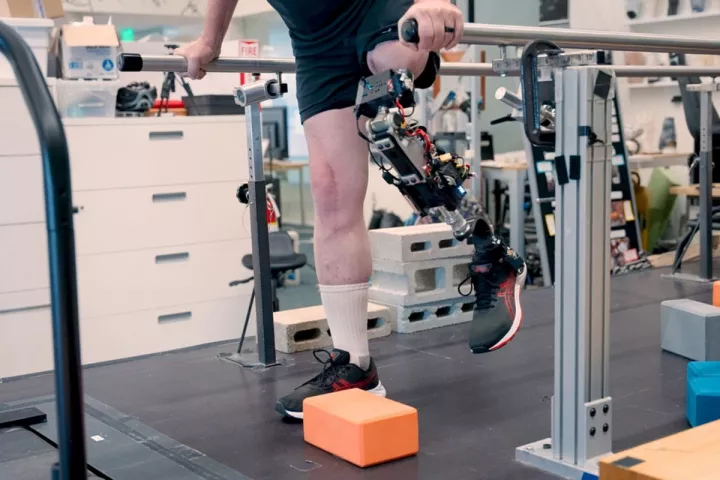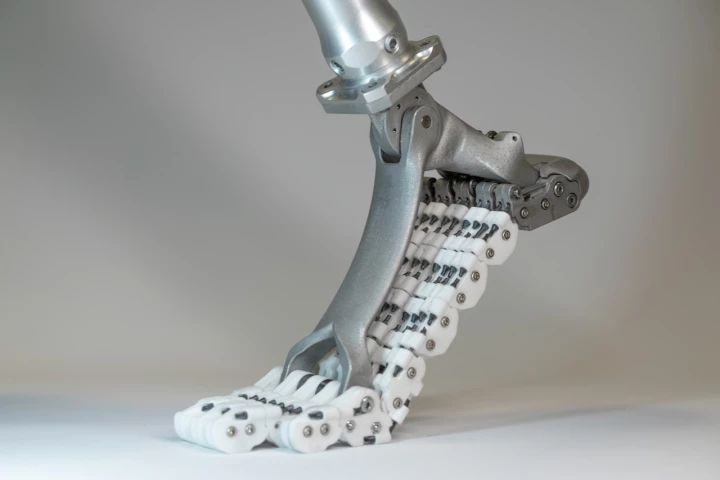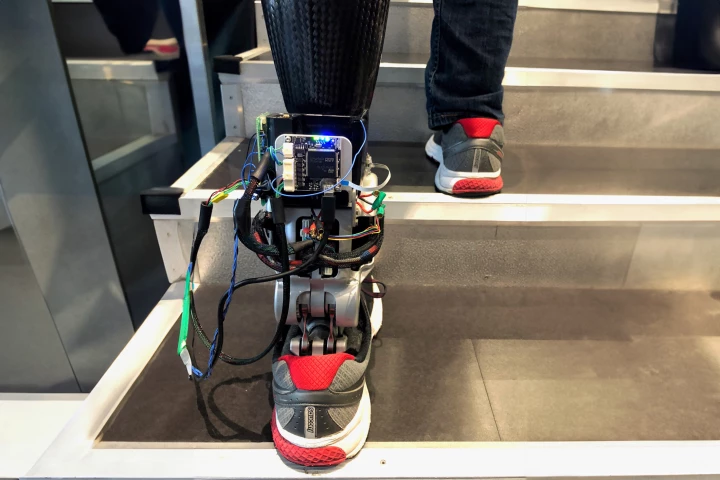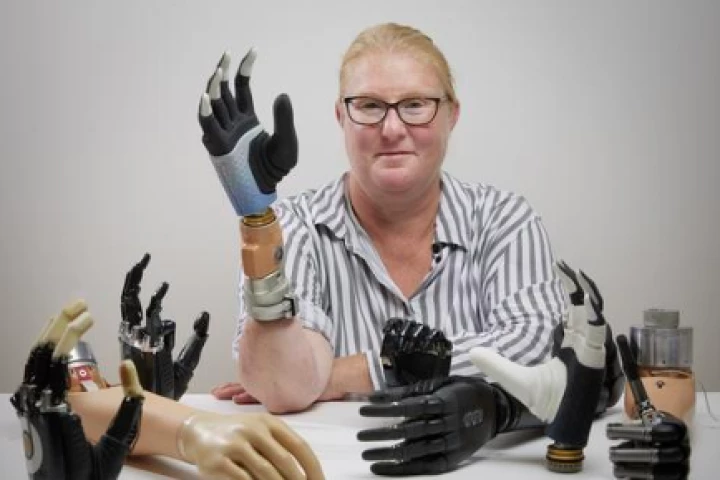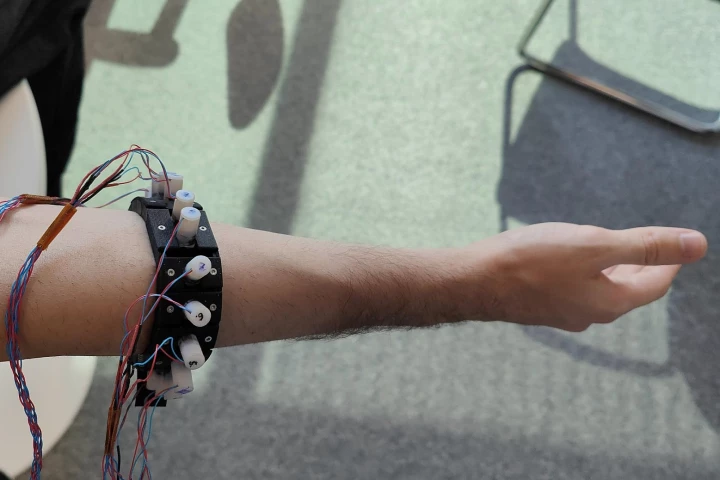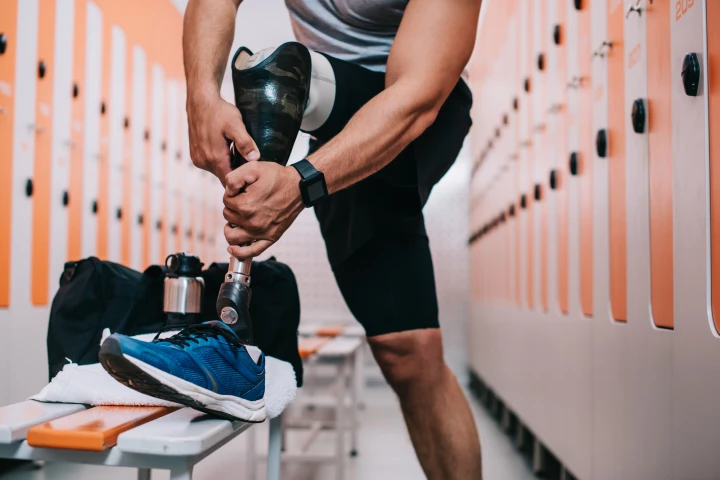Prosthetics
-
MIT researchers have developed a method to restore natural movement in people with leg amputations above the knee. The team created a bionic knee that integrates with a patient's muscle and bone, enabling fluid motion and greater control.
-
Researchers at Johns Hopkins University have come up with a better prosthetic hand that uses a hybrid design and a complex sensor system to carefully grip various objects with just the right amount of pressure.
-
Combining lab-grown muscle tissue with a series of flexible mechanical joints has led to the development of an artificial hand that can grip and make gestures. The breakthrough shows the way forward for a new kind of robotics.
-
Imagine if one (or both) of your feet couldn't conform to uneven walking surfaces, or flex to spring you forward with each step. That's what it's like for most people who have prosthetic feet, although an experimental new foot could change that.
-
A new surgical technique for below-the-knee amputations retains a person’s ability to receive sensory feedback from remaining muscles. Having a prosthetic leg driven by an amputee’s own nervous system enables them to walk much more naturally, new research has shown.
-
The world is edging closer to fully functional prosthetic limbs, with the success of the bionic Mia Hand. This futuristic piece of biotech connects to the nervous and skeletal systems to offer 80% of normal, daily use to someone who has lost a hand.
-
If the socket of a prosthetic leg doesn't conform to the contours of the user's leg stump, pain and even skin ulcers may result. A new prosthesis should help keep that from happening, by automatically pumping up its socket to maintain a good fit.
-
Currently, almost all powered prosthetic hands utilize electrodes that detect the user's muscle impulses and convert them into hand movements. A new system which is in development, however, should reportedly work better by utilizing ultrasound.
-
Researchers at the University of Cambridge in the UK have combined human stem cells with flexible electronics to create a new type of neural implant that has the potential to help amputees or those who’ve lost the use of their limbs.
-
Although advances are occurring in the field of powered prosthetics, the devices still require heavy batteries. Scientists at Rice University are trying to change that, by creating a pneumatic "extra limb" that's powered by the wearer's footsteps.
-
Skin plays a key role in our sense of touch, but its sensitivity is hard to replicate. Now, researchers have developed a new type of electronic skin (e-skin) containing tiny embedded hairs that can precisely perceive touch and the direction it moves.
-
Ordinarily when someone requires a prosthetic eye, a mold has to be made of their eye socket, after which the prosthesis is built by hand. A new 3D printing system, however, is claimed to be much quicker, and to produce a more realistic-looking eye.
Load More
